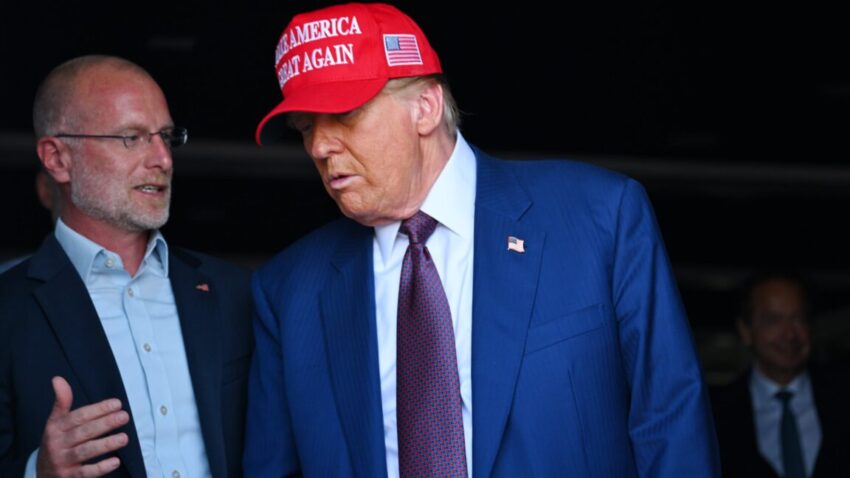
after getting jimmy kimmel suspended fcc chair Following the suspension of Jimmy Kimmel, FCC Chairman Brendan Carr is now turning his attention to other ABC and NBC programs, raising questions about regulatory scrutiny in the realm of late-night television.
after getting jimmy kimmel suspended fcc chair
Background on Jimmy Kimmel’s Suspension
In a surprising move, ABC suspended late-night host Jimmy Kimmel after pressure from FCC Chairman Brendan Carr. Kimmel’s suspension stemmed from a controversial segment that aired on his show, which some critics deemed inappropriate. The decision to suspend Kimmel has sparked a significant backlash, with many viewing it as an overreach of regulatory authority. Carr’s actions have raised concerns about the implications for free speech and the autonomy of television networks.
Brendan Carr’s Regulatory Focus
Brendan Carr, who has served as the FCC Chairman since 2017, has been vocal about his stance on content regulation in the media landscape. His recent comments on a radio show hosted by Scott Jennings indicate a broader agenda that could affect various programs across major networks.
Comments on The View
During his appearance on Jennings’ show, Carr was asked about the potential violations of FCC rules by other ABC programs, specifically mentioning The View. Jennings, who describes himself as “the last man standing athwart the liberal mob,” suggested that The View may run afoul of FCC guidelines more frequently than Kimmel’s show. Carr did not shy away from the inquiry, indicating that he is indeed scrutinizing The View and its content.
Late-Night Hosts Under Scrutiny
In addition to The View, Carr’s comments extended to NBC’s late-night hosts, Seth Meyers and Jimmy Fallon. The mention of President Trump’s previous calls for the cancellation of these shows adds a political dimension to the discussion. Carr’s remarks suggest that he is considering whether these programs engage in similar behavior to Kimmel’s, which led to his suspension.
Implications of Carr’s Statements
The implications of Carr’s statements are far-reaching. If the FCC begins to enforce stricter regulations on late-night television, it could set a precedent for increased government oversight of media content. This could lead to a chilling effect on free speech, as networks may self-censor to avoid potential penalties.
Stakeholder Reactions
The reactions from various stakeholders have been swift. Media analysts and free speech advocates have expressed concern over Carr’s approach. Many argue that the FCC should not be involved in content regulation, particularly in the realm of comedy and satire, which often push boundaries and challenge societal norms.
Industry Responses
Television networks are also closely monitoring the situation. ABC and NBC may need to reassess their programming strategies to avoid potential conflicts with the FCC. This could lead to a shift in the types of content produced, with networks opting for safer, less controversial material.
Historical Context of FCC Regulation
The FCC has a long history of regulating broadcast content, but its role has evolved significantly over the years. Historically, the commission focused on issues such as indecency and obscenity, often responding to public outcry over specific incidents. However, the rise of cable and streaming services has complicated the regulatory landscape, as these platforms operate under different rules.
Current Regulatory Landscape
As of now, the FCC’s authority primarily extends to broadcast television and radio. Cable and streaming services are not subject to the same level of scrutiny, which raises questions about fairness and consistency in regulation. Carr’s recent comments suggest a desire to expand the FCC’s reach into areas traditionally considered outside its purview.
Potential Consequences for Late-Night Television
If Carr’s regulatory focus continues, late-night television could face significant changes. Hosts may feel pressured to alter their comedic styles or avoid certain topics altogether. This could lead to a homogenization of content, where shows become less daring and more formulaic.
Impact on Comedic Expression
Comedy often thrives on pushing boundaries and addressing controversial subjects. If late-night hosts are forced to self-censor due to fear of regulatory repercussions, the quality and diversity of comedic expression could diminish. This would not only affect the hosts but also the audiences who rely on these programs for commentary on current events.
Public Sentiment and Free Speech Concerns
The public’s reaction to Carr’s actions has been mixed. While some support his stance on regulating content they deem inappropriate, others view it as an infringement on free speech. The debate centers around the balance between maintaining standards and allowing creative freedom.
Legal Considerations
Legal experts are weighing in on the potential ramifications of Carr’s regulatory approach. They argue that any attempt to impose stricter regulations on late-night television could face significant legal challenges. The First Amendment protects freedom of speech, and any actions perceived as censorship could be met with resistance in the courts.
Future of Late-Night Television
The future of late-night television hangs in the balance as Carr continues to scrutinize programs like The View, Jimmy Kimmel Live!, and others. The industry is at a crossroads, with the potential for increased regulation looming over creative expression.
Looking Ahead
As the situation develops, it will be crucial for networks, hosts, and audiences to remain vigilant. The ongoing dialogue about the role of the FCC in regulating content will likely shape the landscape of late-night television for years to come. Stakeholders must consider the implications of regulatory actions and advocate for the preservation of free speech in the media.
Conclusion
Brendan Carr’s focus on late-night television raises significant questions about the future of media regulation and free speech. As he targets programs like The View and NBC’s late-night offerings, the potential for increased oversight looms large. The industry must navigate these challenges while ensuring that creative expression remains a cornerstone of late-night programming.
Source: Original report
Was this helpful?
Last Modified: September 19, 2025 at 11:36 pm
1 views














